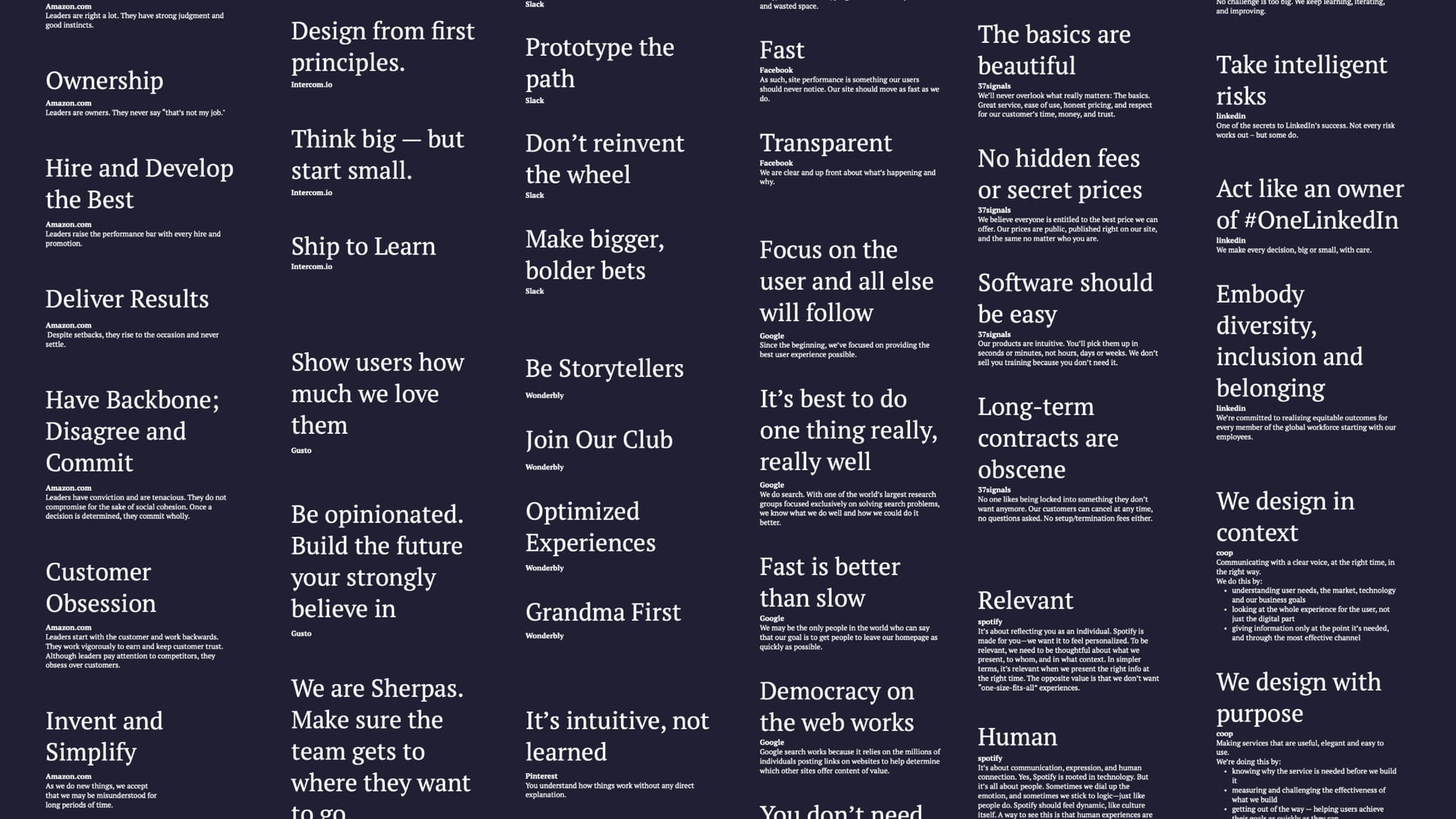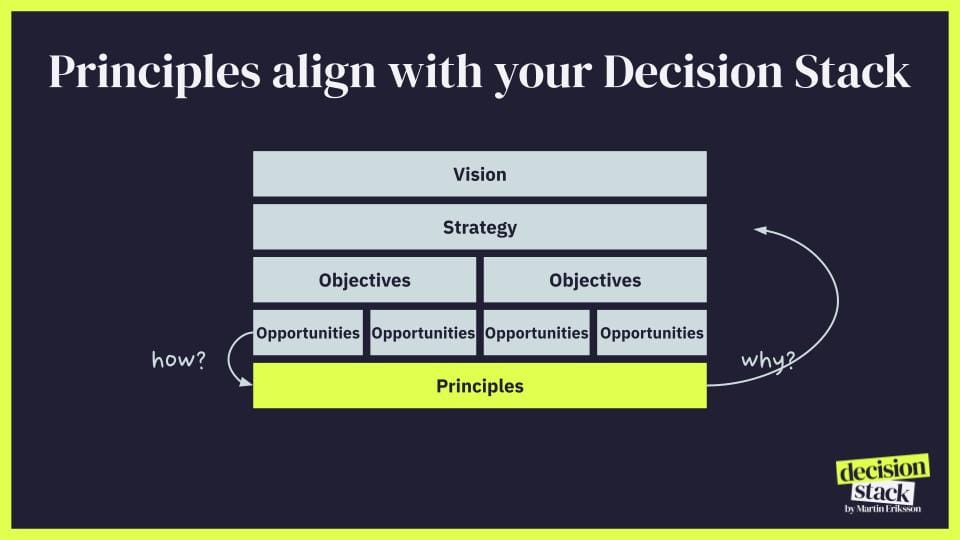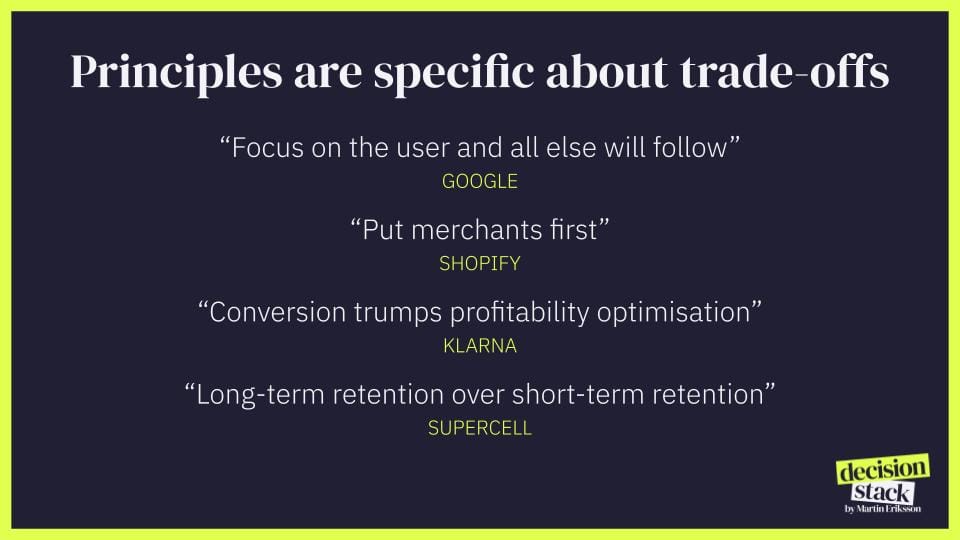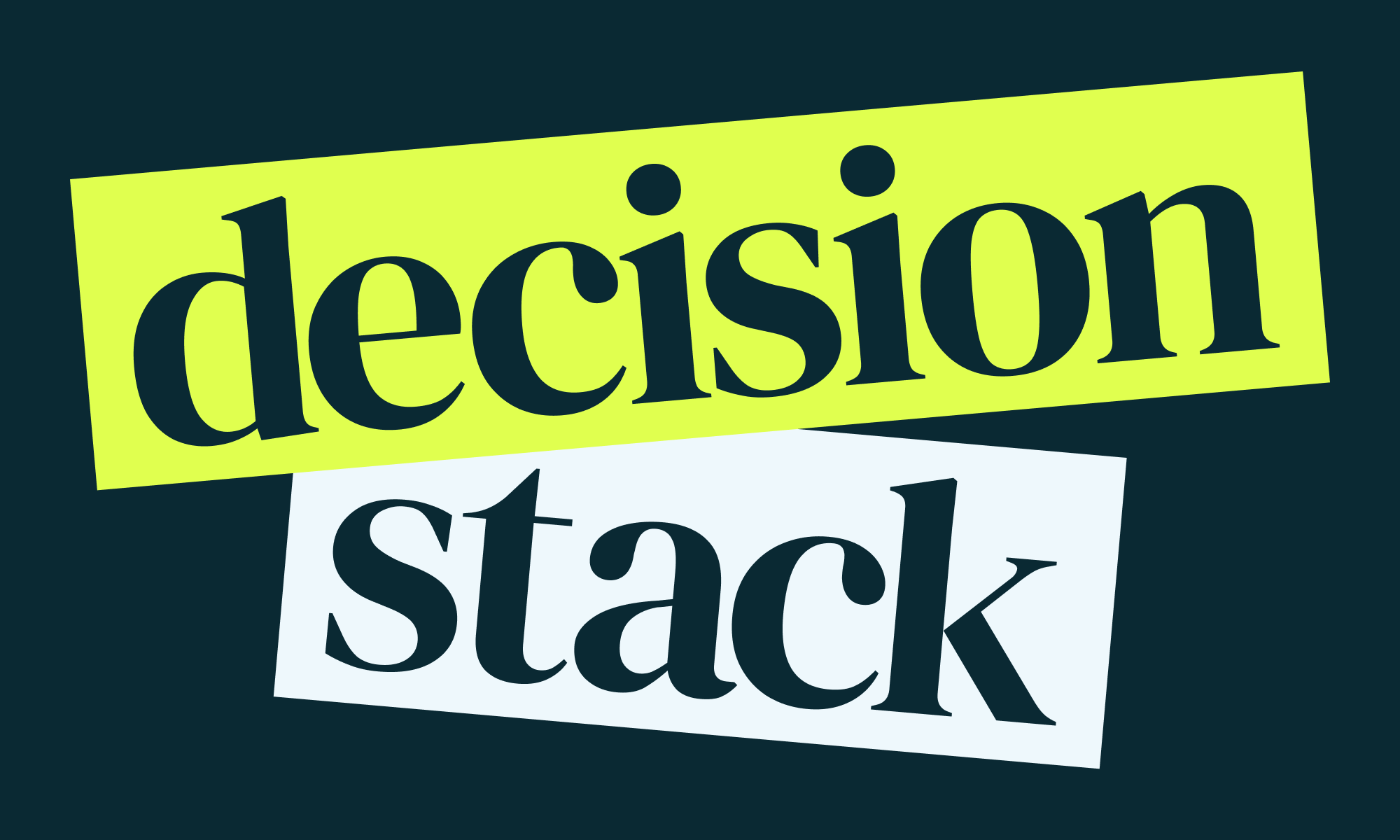Why your values are useless

How many of you have something like "Build a delightful user experience" as a value? Maybe you call it a team value, a product principle, or design value? Most of us do. Because it's an admirable goal. Of course we want to build amazing delightful user experiences. And our industry is rife with similar values, as you can see in the image above, based on research from my friends at Xing.
But do any of these fluffy values really help you make decisions? Have you ever gone in to a meeting super excited to present your latest and greatest plan for a shitty user experience, only to be reminded that that probably doesn't fit your values? Of course not.
Values vs Principles
So values don't help you make decisions. But they do have their place. When written well they can be strong reflections of the culture and the product practice you want to build. One of my favourites from my time at Mind the Product was "If we're not winning, we're learning", which helped us all focus on learning from experiments and taking a win even if that experiment didn't succeed.
But to help make actual product decisions, and drive the product you want to build you need something else. You need principles.
Principles are a framework for making better decisions, faster
I learned this lesson very early on. My first ever job as a product manager was at Monster.com in 1999. As a job board, Monster is/was a two-sided marketplace with jobseekers using it for free to find jobs on one side, and recruiters paying to advertise to or access those jobseekers on the other. When I started we spent an inordinate amount of time at the beginning of every new feature or initiative debating whether that feature should be built in a jobseeker friendly way, or a recruiter friendly way. Over and over and over again. Until a few months later when Jeff Taylor, the co-founder and CEO, simply said "The jobseeker always comes first - build an amazing experience for them and the recruiters will follow".
Not only did this brilliantly succinctly encapsulate the company strategy and set the groundwork for an aligned approach to branding, marketing, product, and sales, but suddenly those debates in product evaporated. We had our answer. The decision had been made. And it had been codified in such a way that it didn't have to be debated again. Jobseekers always came first.
Good principles align with your Decision Stack
At Monster, the alignment with Strategy was the key to making that principle stick. As with all the elements of the Decision Stack, it's crucial that they connect the dots from top to bottom - and from bottom to top.

So your principles have to be a reflection of your vision and strategy - and have to help answer the questions "How are we going to build this" and "Why are we building this" at the same time.
This is also how you ensure that your principles are specific to your company and what you're trying to do, not just the same generic values everyone talks about.
Good principles are specific about trade-offs
Principles take it one step further though, and crystallise the inherent trade-offs in any good strategy. A brilliant way to do this is to use even/over statements. Maybe like Monster you're focused on jobseekers even over recruiters. Maybe you flip the two-sided marketplace on it's head and say what Shopify says: merchants even over shoppers.

You may recognise even/over statements from the Agile Manifesto - and just as in the Manifesto we're not saying the things on the right are not important, we're just saying that in any trade-off they are less important than the thing on the left.
Good principles are based on evidence and insight
Good principles aren't created in an ivory tower and handed down to the team as theoretical maxims - they're created on the fly based on real decisions you're regularly struggling with. This means you should still be encouraging everyone to challenge strategy, principles, and individual decisions. Just have the resulting debate once, back it up with insights and evidence, test any assumptions you come up against, and then codify it so you don't have to have it again.
Good principles make your values actionable
I take some potshots at values in this article, but there's nothing wrong with having good values of course. It's just important to use principles to make those values actionable.
So instead of just saying "Build a delightful user experience" you might call out how you're actually going to do that, like Pinterest does when they say "Intuitive, not learned" which focuses their teams on making intuitive, easy to understand experiences instead of relying on documentation, onboarding tools, or support to cover the gaps. Or instead of saying "Make something people want" you might do what Coop does and say "We design for everyone", emphasising that they want to put accessibility and usability at the core of everything they do.
Good principles evolve
Principles aren't set in stone, never to change again - they can and must evolve as you learn new things about your customers, market, and business that invalidate any of your earlier assumptions about your strategy or the principles that reflect them.
This also means your principles need to be reviewed regularly, to ensure they're still aligned with your strategy and that they're helping you make the decisions you're facing regularly.
By pruning your principles regularly, you also make sure you never have too many.
Creating your principles
Principles are a shared responsibility, so it's important that they are created from the bottom up as much as they are created from the top down.
From the bottom up: Use your retrospectives to talk about what you're regularly debating or discussing. What trade-offs do you keep coming up against? What have you said no to recently? All of these make for excellent principles.
From the top down: Reinforce your strategy by articulating acceptable trade-offs as principles - what's really going to make your strategy successful? What trade-offs are you happy to make to achieve that? What are you not going to do?
Make room for big leaps
So principles can help you make better decisions, faster by reflecting your strategy in easy to remember ways. They also help you reduce the decision overload you are almost certainly suffering from - giving you more time and energy for those really big decisions about big new ideas instead.

